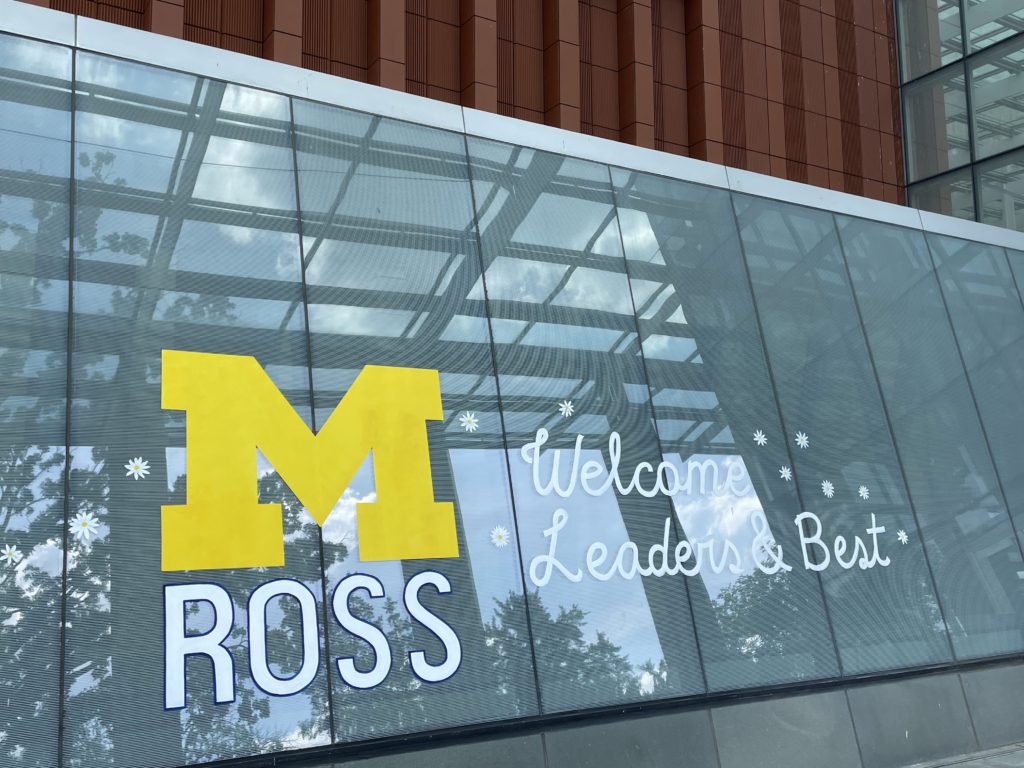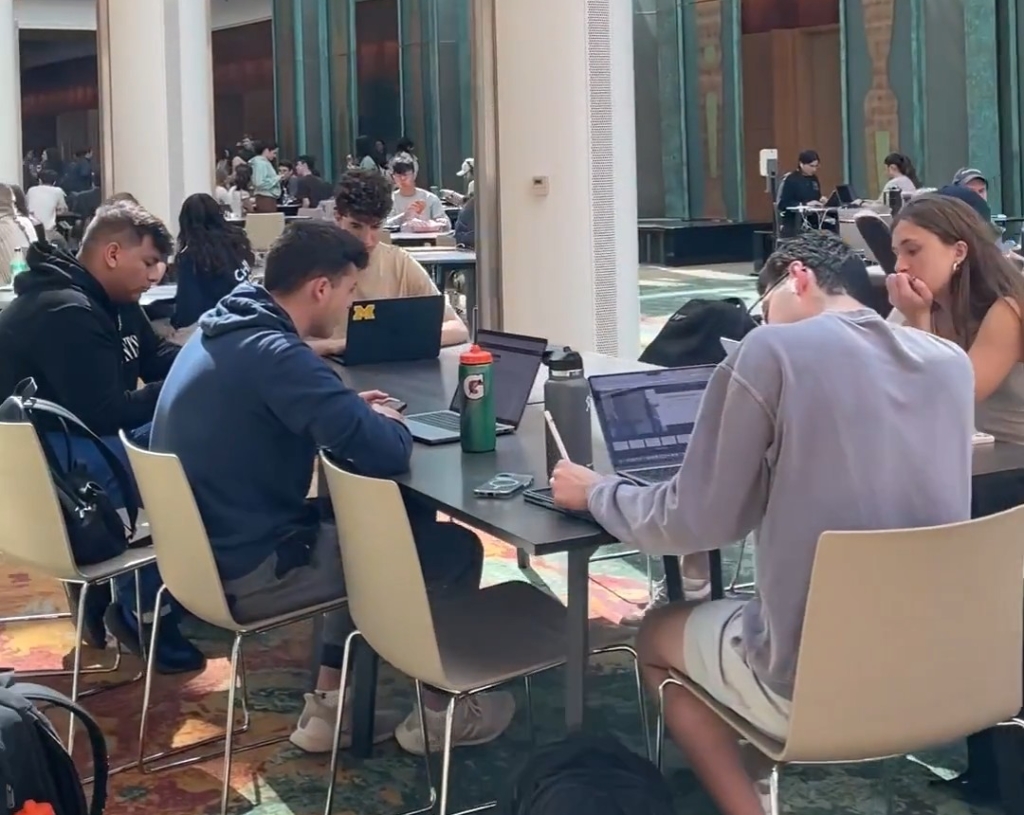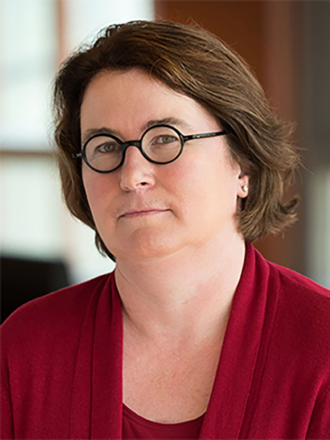
Happy birthday to Michigan Ross. The business school at the University of Michigan celebrates 100 years in 2024. Courtesy photo
University of Michigan Ross School of Business
2024 will certainly be a year to celebrate at University of Michigan’s Stephen M. Ross School of Business. It turns 100!
The School of Business opened in 1924 in Tappan Hall. It offered just one degree (a two-year Master of Business Administration) and had just 14 faculty – including one of the first women to be a member of a business school, Margaret Tracy.
Today, it employs nearly 210 academic staff and educates more than 2,400 undergrads and 1,800 graduate students per year. It’s also one of the best undergraduate business programs in the country, consistently ranking in the top five of P&Q’s undergraduate business school ranking. It landed at No. 5 this year.
In January, Ross dean Sharon Matusik shared her predictions for 2024 with P&Q readers. She expected an increasing expectation for business schools like Ross to train student to address the grand challenges of our time – from climate change to technology disruption. She also outlined priorities for Ross centered around DEI, action-based learning, and heightened global visibility.
“As we commemorate a century of excellence and impact, Ross remains as committed as ever to its mission of building a better world through business. We have clear values that guide our actions and a deliberate strategy for achieving our mission. In 2024, we will double down on this strategy,” Matusik wrote.
P&Q INTERVIEW WITH PAUL KIRSCH & CATHY SHAKESPEARE
Poets&Quants For Undergrads asked Paul Kirsch, Managing Director of Undergraduate Programs, and Cathy Shakespeare, Thomas C Jones Associate Dean for Undergraduate Education and
Professor of Accounting, to tell us more about the distinguishing features of the Ross undergrad business degree. Their answers are below.
What are recent and upcoming program developments and innovations that will enhance the experience of future students?

Paul Kirsch, Michigan Ross Managing Director of Undergraduate Programs
Kirsch: We expanded our previous diversity, equity, and inclusion (DEI) programming and have re-envisioned it as a new Inclusive Leaders Pathway that is embedded in each of a student’s four years through the Signature Learning Experience. Our associate dean and director of DEI are working closely with this program to constantly improve how our students engage with these important issues in society.
In Fall 2022, our second-year undergraduate business students were introduced to Spire @ Ross, a technological platform that lays the foundation for their success at Ross and beyond. This is done through 12 core competencies (e.g. communication, ethical reasoning, critical thinking, lifelong learning). These competencies derive from key learnings within the curriculum at Ross, value rubrics from the American Association of Colleges and Universities, and the skills employers are looking for in top graduates. By weaving the competencies through the curriculum and challenging students to engage with the Career Development Office and their academic advisors, students are able to personalize their education and demonstrate increased ability and engagement. Students demonstrate this growth and eventual mastery by responding to a series of prompts and reflecting on their academic, co-curricular, and professional experiences.
Any other notable news coming for 2024 that readers should know?
Kirsch: 2024 is the 100th anniversary of the founding of the Ross School of Business. There will be celebrations and programming throughout the year. We are acknowledging notable alumni and donors as well as the leadership the Ross School of Business has shown in business education.
What are your program’s two biggest differentiators from other top undergraduate business programs? How do these prepare students for their careers?
Kirsch: 1) Action-Based Learning: Michigan Ross continues to build on its heritage of providing students with a distinctive way to learn business: by actually doing it. With our acclaimed REAL (Ross Experiences in Action-Based Learning) programming, every BBA student has the opportunity to start a business; advise a business; invest real money in a diverse range of student-led investment funds; and contribute their leadership to an existing business. Every student engages with ABL in their sophomore year and junior core classes, and about 75% of each class engages in at least one additional action-based learning experience through curricular or co-curricular experiences.
2) Comprehensive and Flexible Curriculum: The BBA curriculum develops critical thinking, core business skills, and durable competencies that integrate across the curricular and co-curricular experiences, allowing students to personalize their own journey. Highlights include:
- First Year: BA100 Foundations in Learning Business focuses on both transitioning to U-M and Ross, and teaches students the elements required to learn business successfully.
- Second Year: BA200 Business & Leaders: The Positive Difference gives students a broad understanding of the role of business in society, the individual’s role in business, and the value and practice of leadership.
- Third Year: Ross Integrative Semester (RIS) is four core courses taught from a common integrated perspective that allows students to see business as an integrated whole and to solve problems within high-functioning teams. Within the semester, students work on an Action-Based Learning business challenge to address real-world business and social issues.
- Fourth Year: Capstone elective courses provide a chance to bring together a student’s full academic experience. The new core course in development will allow our students to integrate their learning across the curriculum and further help launch Ross students into their chosen careers.

‘The most underrated feature of the Ross undergraduate program is the sense of belonging that is cultivated by our students, faculty, staff, and alumni. Michigan Ross creates a community that attracts students who are collaborative and team-oriented.’ Courtesy photo
What is the most underrated feature of your undergraduate business program and how does it enhance the experience for your business majors?
Kirsch: The most underrated feature of the Ross undergraduate program is the sense of belonging that is cultivated by our students, faculty, staff, and alumni. Michigan Ross creates a community that attracts students who are collaborative and team-oriented. Faculty and staff are focused on developing well-prepared, empathetic leaders. Alumni play an active role in student learning as guest speakers, action-based learning project sponsors, recruiters, and mentors.
What else would you like readers to know about your program?
Kirsch: We have been enhancing our pre-enrollment activities. Both first-year and transfer students have multiple days of welcome and orientation programming. First-year students will begin attending classes in their sections which previously were not defined until sophomore year. These changes enhance the community within Ross and allow students to develop a true sense of belonging.

The Ross School of Business at University of Michigan. Courtesy photo
What separates your graduates from other business school graduates?
Shakespeare: At Ross, leadership is not just about having the technical knowledge to be successful. The curriculum and world-class faculty at Michigan Ross, and more broadly the University of Michigan, prepare students with the expertise to excel in virtually any role. What differentiates Ross graduates is that they have applied classroom learning in real-world situations. Our emphasis on soft skills alongside technical expertise allows alumni to flourish in all types of industries and roles despite the fast pace of change. Furthermore, the culture of collaboration and inclusivity enables Ross graduates to thrive in team environments.
Explain the career services, programming, and extracurriculars that give your students an advantage in career outcomes?

Cathy Shakespeare, Michigan Ross Associate Dean for Undergraduate Education
Shakespeare: The Michigan Ross Career Development Office(CDO) has a dedicated in-house team whose responsibility is to prepare students with the skills to execute successful career searches. The staff in CDO facilitates students’ learning as they develop the skills needed to manage their careers well beyond their first job, as graduates will navigate numerous roles and career pivots throughout their professional lives. Ross provides career support for life through Alumni Advantage, a program that offers free career coaching and tuition-free executive education.
Early classes in the BBA program introduce and discuss various roles and industries. As recruiting accelerates, Ross provides resources and structure for students to enhance their career readiness (networking, interviewing, personal branding) and understand the recruiting process earlier than ever before. CDO provides equitable support to a diverse student population by leveraging a variety of modes and channels for student learning with a focus on career exploration and recruiting preparation support through signature experiences such as high-touch 1:1 career coaching, company treks, Career Exploration Week, Functional Action Networks (career-prep communities focused on mentorship, networking, and community), and Career Foundations learning modules.
There are nearly 70 undergraduate clubs at Ross that can provide additional action-based learning opportunities. For example, they can be part of real consulting teams tackling projects for corporate clients or trading equities with independent funds.
When alumni look back on their time in your undergraduate business program, what would they consider to be their signature experience?
Shakespeare: Ross Integrative Semester (RIS), which takes place in the fall of their third year, is four core courses taught from a common integrated perspective that allows students to see business as an integrated whole and to solve problems within high-functioning teams. Within the semester, students work on an Action-Based Learning business challenge to address real-world business and social issues. The emphasis on teams beyond RIS is a defining feature of the program and is often an alum’s first recollection of their Ross experience. Not every team is high-functioning, but every team experience at Ross has deep learning potential.
Which employers are the biggest consumers of your undergraduate talent and what have they told you about your alumni that make them so special?
Shakespeare: Companies from all industries, geographic areas, and sizes hire Ross BBA graduates. The top hiring companies include McKinsey & Co, Capital One, PwC, Deloitte, and Bain & Co. Inc. Hiring companies have told us that Ross grads are equipped with the technical knowledge to perform at a high level and are exceptionally well prepared to lead in a collaborative team environment.
NEXT PAGE: Loyola Marymount University College of Business Administration











Questions about this article? Email us or leave a comment below.